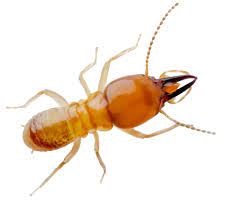As the city continues to expand with new residents, it now has close to 28,000 residents. More families are finding these blood-sucking parasites in their yards, exposing both pets and family members to ticks that transmit diseases. Tumwater’s rich natural scenery, warm Pacific Northwest climate, and increasingly suburban sprawl culminated in perfect conditions for ticks to flourish.
The most frightening part for local pet owners is that these pests are not just in wooded areas but are moving into manicured lawns and gardens where dogs and cats roam. Suppose you are seeing ticks on your pets or your property. In that case, we encourage you to reach out to the best pest control in Tumwater, who can help identify and prevent the risk of these harmful little buggers from threatening your family and pets!
Why Ticks Are Increasing In the Yard Problem in Tumwater
-
Climate Change Creates Favorable Conditions
As the climate warms, it creates a window of opportunity for the stronger parasites, which now have a better habitat across Western Washington. With winters in the Tumwater area becoming milder in the past ten years and warm months lasting longer, our local ticks can stay active longer and have additional generations to reproduce and expand locally.
-
Urban Development Meets Natural Habitat
As Tumwater grows quickly, the population has risen by 7% since 2020, and more homes are closer to forests and natural areas. The urban-wilderness interface is a ticking time bomb that allows passage from wild landscapes into residential yards, particularly properties that abut green belts or the Capitol State Forest.
-
Western Blacklegged Ticks Dominate the Region
In western Washington, the common species of tick is the blacklegged tick, and those ticks love the habitat Tumwater provides. These russet-and-black critters like a bit of that bushy-wooded suburbia that’s prevalent throughout Thurston County, so the local yards are ideal real estate for becoming a tick site.
-
Pet Movement Facilitates Spread Even More
Meanwhile, dogs and cats inadvertently serve as tick taxis, bringing ticks from the trail, park, or wild area right into Tumwater yards. Places like Tumwater Falls Park and the Chehalis Western Trail are local favorites, and they turn into pickup locations for ticks that go home with pets.
-
Landscape Features Attract Ticks
Numerous Tumwater residences showcase the precise ecological conditions ideal for ticks: transitions between lawns and shrubs, including wood piles, leaf litter, and ornamental grasses. These areas blend aspects of maintained landscapes and natural ones, offering the humidity and refuge where ticks can linger.
-
Year-Round Activity in Mild Climate
Ticks are around all year, yet they are more common during the warm months of spring and summer. Since Tumwater’s winters are relatively mild, Tick activity never completely dies off in the wintertime, allowing the populations to build up over the years with minimal seasonal die-off factors as well.
Common Risks to Pets and People
- Lyme Disease Spread
- Tick Paralysis in Animals
- Skin infections
- Ehrlichiosis and Anaplasmosis
- Tumwater residents can be exposed to tick-borne illnesses
When You Need Expert Help
Identifying tick issues that necessitate professional assistance can save Tumwater households time and reduce health risks. When you find several ticks on the pets’ yard, or family members end up with tick bites without leaving your property, it is time to call in the professionals.
Companies such as Pointe Pest Control know the needs of Thurston County residents regarding ticks and can target a specific treatment for your home. They consider the aspects of your yard that could make you vulnerable, from landscaping attributes to nearby woods, and create treatment programs that focus on existing infestations and future prevention.










